North Africa
North Africa is a cultural subcontinent in the northern part of Africa. It is sometimes defined as extending from the shores of the Atlantic, from Morocco to the west, to the Suez Canal and to the Red Sea, in Egypt to the east. The most commonly accepted definition includes from East to West : Egypt, Sudan (sometimes included in East Africa), Libya, Tunisia, Algeria, Morocco, Western Sahara and Mauritania (often included in West Africa). The United States Census Bureau defines North Africa as Algeria, Libya, Egypt, Morocco and Tunisia. The countries of North Africa share a common ethnic, cultural and linguistic identity specific to this region, such as the language (Arabic), as well as religion (Islam). North Africa has been inhabited by Berbers since the beginning of history, while the eastern part of North Africa was home to the ancient Egyptians, who maintained close relations with the Berbers during antiquity. After the Muslim conquest in the 7th century, the region underwent an Arabization and Islamization process which has since redefined its cultural landscape. The distinction between North Africa and sub-Saharan Africa is historically and ecologically significant due to the natural barrier created by the Sahara Desert for much of modern history. North Africa is populated by Arabs and Berbers, while sub-Saharan Africa is populated by blacks. From 4000-3600 BC. AD, following the abrupt desertification of the Sahara due to gradual changes in Earth’s orbit, this barrier culturally separated the North from the rest of the continent. As the maritime civilizations of the Phoenicians, Greeks, Romans, Muslims and others facilitated communication and migration across the Mediterranean Sea, North African cultures were more closely linked to Southwest Asia and Europe than in sub-Saharan Africa. Islamic influence in the region is also significant, and North Africa is a major part of the Muslim world.
An increasing number of researchers have postulated that North Africa, rather than East Africa, served as a point of exit for modern humans who first left the continent during migration from Africa.
Etymology
North Africa is also called White Africa. This term contrasts with that of “black Africa”, designating sub-Saharan Africa. Georg Wilhelm Friedrich Hegel also called it “European Africa” while Elisha Reclus saw in North Africa an appendage of the Latin Arc. The expression white Africa referred either geographically to the north of the Sahara or, ethnically, to the “white” minorities of “black” Africa : Afrikaners in the south, Tuaregs in the Sahel.
Geography
The Atlas mountains extend over a large part of Morocco, northern Algeria and Tunisia, are part of the fold mountain system which also crosses much of southern Europe. They retreat to the south and east, becoming a steppe landscape before meeting the Sahara Desert, which covers more than 75% of the region. The sediments of the Sahara cover an ancient plateau of crystalline rock, some of which are more than four billion years old. South of the Atlas is the arid and desert expanse of the Sahara Desert, the largest sandy desert in the world. In places, the desert is cut by irregular rivers called wadis (or wadis) which do not run until after the precipitation but are generally dry. The main reliefs of the Sahara include ergs, large seas of sand which sometimes form immense dunes ; the hammada, a flat rocky plateau without soil or sand ; and the reg, a flat surface made up of gravel or small stones. The Sahara covers the southern part of Morocco, Algeria and Tunisia, and most of Libya. Only two regions of Libya are outside the desert : Tripolitania to the northwest and Cyrenaica to the northeast. Most of Egypt is also desert, with the exception of the Nile and the irrigated land along its banks. The Nile Valley forms a narrow fertile streak that spans the entire length of the country. The sheltered valleys in the Atlas Mountains, the Nile Valley and Delta, and the Mediterranean Sea are the main sources of fertile agricultural land. A wide variety of valuable crops, including grains, rice and cotton, and woods such as cedar and cork, are grown. Typical Mediterranean cultures, such as olive, figs, dates and citrus fruits, also thrive in these regions. The Nile Valley is particularly fertile, and most of the population in Egypt lives near the river. Elsewhere, irrigation is essential to improve crop yields on the margins of the desert.
North Africa’s countries
-
- Algeria
- Morocco
- Western Sahara
- Tunisia
- Libya
- Egypt
- Mauritania
-
Libya
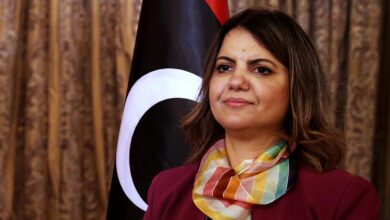
Libyan Foreign Minister Confirms Groups Of Foreign Fighters Have Left Country
Libyan Foreign Minister Najla al-Mangoush on Sunday confirmed some foreign fighters have already left the war-torn North African country, reported…
Read More » -
Algeria
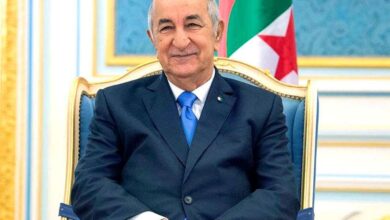
Algerian Government Bans French Military Planes From Airspace As Tensions Rise
The Algerian government on Sunday banned French military planes from entering its airspace amid an ongoing diplomatic crisis, reported Daily…
Read More » -
Tunisia
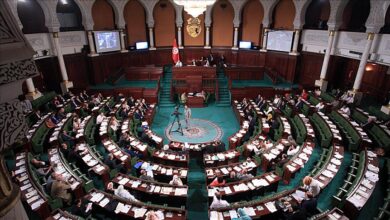
Tunisian Parliament Speaker Ghannouchi Urges Lawmakers To Resume Work
Tunisian parliament speaker Rached Ghannouchi on Friday urged lawmakers to resume work as he declared the assembly in session, reported…
Read More » -
Algeria

Algeria: Pharmaceutical Firm Saidal Begins Production Of Sinovac’s COVID-19 Vaccine
Algeria on Wednesday begun production of the COVID-19 vaccine developed by China-based Sinovac as part of an agreement between the…
Read More » -
Egypt
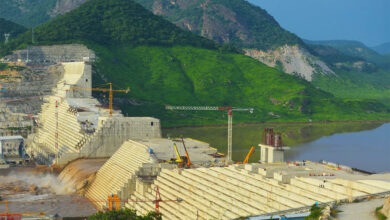
Sudanese Minister Says Construction Of GERD Without Deal A Direct Threat
Sudanese Minister of Irrigation and Water Resources, Yasser Abbas, on Wednesday, warned that continuing construction of the controversial Grand Ethiopian…
Read More » -
Tunisia
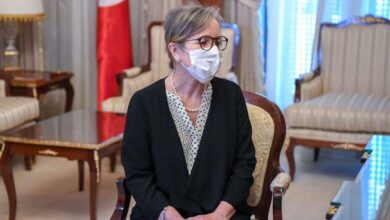
Tunisian President Kais Saied Appoints Country’s First Woman Prime Minister
Tunisian President Kais Saied on Wednesday named Najla Bouden Romdhane as the new prime minister reported Africa News. Romdhane has…
Read More » -
Algeria
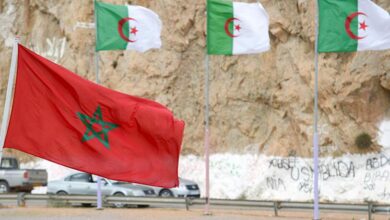
Algerian, Moroccan Foreign Ministers Clash At UN General Assembly Over Western Sahara
Algerian and Moroccan Foreign Ministers took the ongoing dispute over Western Sahara to the United Nations General Assembly on Monday…
Read More » -
Tunisia
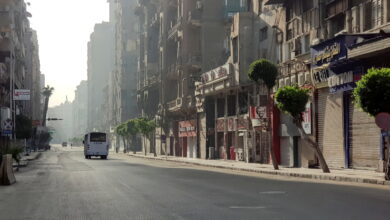
Tunisian Government Lifts COVID-19 Night Curfew As Number Of Cases Drops
Tunisian presidency on Friday announced President Kais Saied has decided to lift the night curfew from Saturday due to a…
Read More » -
Tunisia
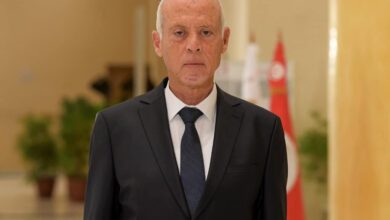
Tunisian Parliament Speaker Calls For Peaceful Struggle Against President’s Moves
Tunisian parliament speaker Rached Ghannouchi on Thursday called for a peaceful struggle against a return to absolute one-man rule, a…
Read More » -
Algeria

Algerian Government Announces Closure Of Airspace To All Moroccan Aircrafts
Algerian government on Wednesday announced the immediate closure of the country’s airspace to all Moroccan civilian and military aircraft, in…
Read More » -
Libya
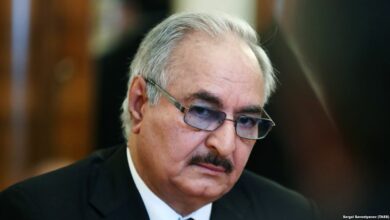
Libyan Strongman Haftar Steps Down From Military Role To Run For President
Libyan eastern strongman Khalifa Haftar has decided to step down from his military role for three months in a bid…
Read More » -
Tunisia
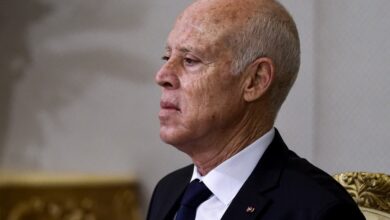
Tunisian President Saied Vows To Name A PM But Maintains Emergency Measures
Tunisian President Kais Saied on Monday said he would appoint a prime minister soon but said emergency measures that he…
Read More » -
Tunisia
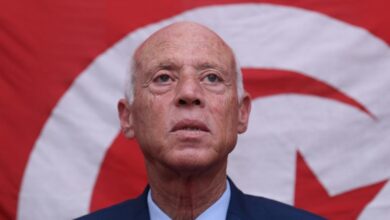
Tunisian President Kais Saied Refuses To Have Dialogue With Country’s Traitors
Tunisian President Kais Saied refused to have any dialogues with those he described as “traitors”, apparently indicating the moderate Islamist…
Read More » -
Tunisia

Tunisian President Kais Saied Indicates Plan To Amend Country’s Constitution
Tunisian President Kais Saied on Saturday indicated plans to amend the country’s constitution, just seven weeks after he seized power,…
Read More » -
Libya
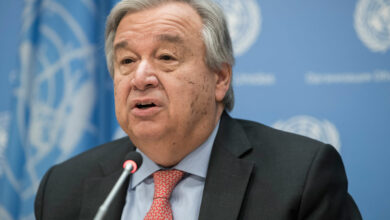
UN Chief Reiterates Call For Withdrawal Of Foreign Mercenaries From Libya
United Nations (UN) Secretary-General Antonio Guterres on Friday reiterated his call for the withdrawal of all foreign fighters and mercenaries…
Read More » -
Egypt
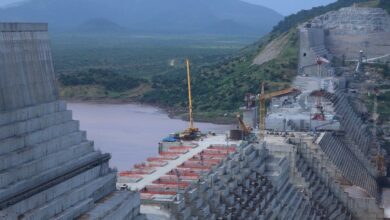
Sudanese Irrigation Minister Says No Impact Of Ethiopian Dam On Floods This Year
A Sudanese minister on Wednesday said the giant dam constructed By Ethiopia on the Blue Nile made no impact on…
Read More » -
Algeria

Algerian Government Ends Diplomatic Ties With Morocco, Citing Hostile Actions
The Algerian government on Tuesday ended diplomatic relations with Morocco, accusing the neighboring country of hostile actions, reported Reuters. “Algeria…
Read More » -
Tunisia

Tunisian President Extends Suspension Of Parliament, Immunity Of Members
Tunisian President Kais Saied on Monday extended the suspension of parliament until further notice, after dismissing his Prime Minister Hichem…
Read More » -
Egypt

Egypt’s Government To Boost COVID-19 Vaccination Ahead Of Fourth Wave
Egypt’s health minister on Monday said the government plans to vaccinate all 4.5 million of its state employees against COVID-19…
Read More » -
Libya
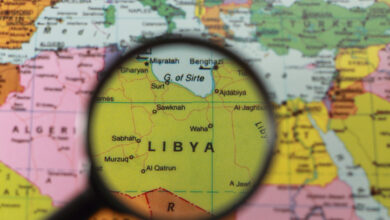
Libyan Government To Reopen Border Crossing, Resume Flights With Tunisia
The Libyan government on Tuesday announced it has decided to reopen its border crossing and resume flights with Tunisia, reported…
Read More » -
Tunisia

Tunisian President Kais Saied Says There Is No Turning Back, Rejects Call For Crisis Talks
Tunisian President Kais Saied on Thursday said he has no intentions to turn back from his decision to freeze parliament…
Read More » -
Morocco

Morocco: Government Extends Night Curfew Timings To Limit COVID-19 Surge
Morocco on Tuesday increased the nationwide night curfew timing from 9 pm to 5 am in a bid to slow…
Read More » -
Egypt

Egyptian Foreign Minister Vows Full Support To Tunisian President Kais Saied
Egyptian Foreign Minister Sameh Shoukry on Tuesday said his country fully supports Tunisian President Kais Saied, who has suspended parliament,…
Read More » -
Tunisia
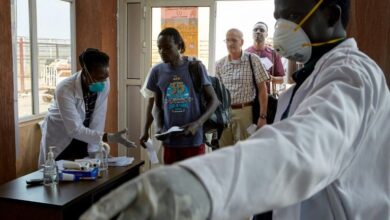
WHO Official Urges Tunisian Government To Speed Up Coronavirus Vaccination
The World Health Organization (WHO) on Monday urged the Tunisian government to speed up coronavirus vaccination, reported News 18. “The…
Read More » -
Tunisia

Tunisian President Appoints Ridha Gharsallaoui As Interim Interior Minister
Tunisian President Kais Saied on Thursday appointed Ridha Gharsallaoui, a former national security adviser to the presidency, as the country’s…
Read More »

